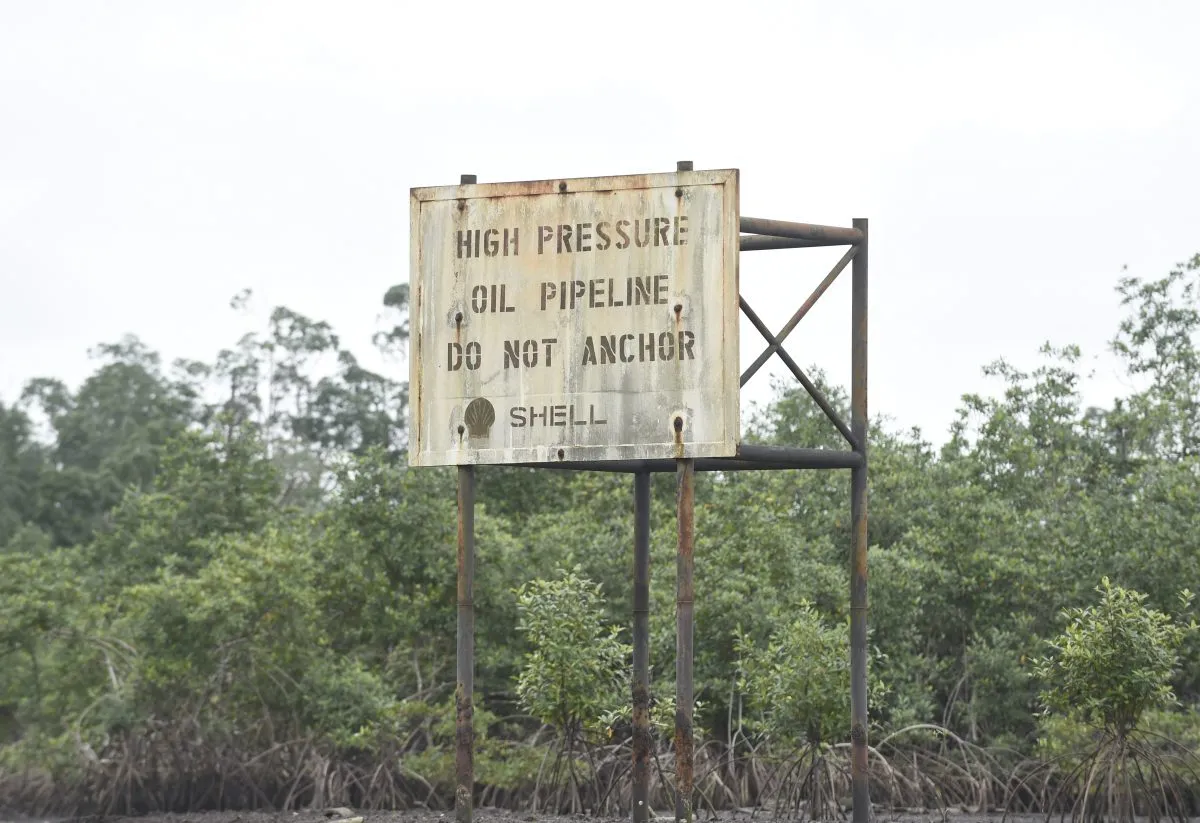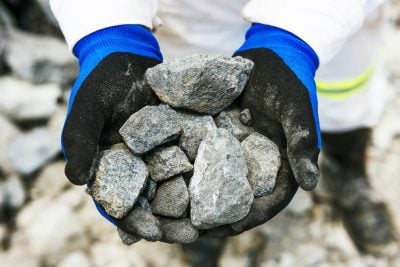Major transactions this year are set to complete changes that will transform the ownership structure of the oil and gas industry in Nigeria. They include Seplat Energy’s bid for ExxonMobil’s assets; Shell’s move to sell its Nigerian onshore subsidiary to the Renaissance Consortium; and Oando’s acquisition of the local unit of Italian oil giant Eni.
President Bola Tinubu, who last year succeeded Muhammadu Buhari and once served as a Mobil executive, told a visiting ExxonMobil upstream delegation in May, led by the company president Liam Mallon, that steps would be taken to resolve problems with the divestment. The state-owned Nigerian National Petroleum Company (NNPC) subsequently ended its objections to the deal and withdrew its legal challenge.
Increased state stake
In return, the state oil company will get a 70% stake in the venture, up from 60%. Seplat will succeed ExxonMobil as the operator of the venture and will acquire four offshore and shallow water oil field leases that accounted for the bulk of ExxonMobil’s output from Nigeria in the last six decades. Seplat will also acqire the Qua Iboe oil export terminal, one of the top three in the country; and acquire a 51% stake in several other ventures, including the Bonny River Terminal, the Natural Gas Liquids plant and the Oso condensate project.
Another major transaction is Shell’s planned sale of its onshore operator, Shell Petroleum Development Company to the Renaissance Consortium. This is a grouping of four local exploration companies (ND Western, Aradel Energy, First E&P and Waltersmith) and a Swiss investment firm, Petrolin. The Nigerian Upstream Petroleum Regulatory Commission (NUPRC) said on September 11 that it had approved the deal, which now awaits the consent of the Petroleum Minister, who is the President. The sale will hand over to Renaissance Shell’s 30% stake in a joint venture with NNPC, TotalEnergies and Eni. This includes 15 onshore oil-mining leases and three shallow-water fields, but excludes Shell’s interest in Nigeria LNG Ltd, which still aligns with its strategic gas investments.
As the oldest and biggest oil industry operator in Nigeria, Shell has left the biggest footprints and has seen more controversy following its divestment plans. Where ExxonMobil operated almost entirely offshore, Shell operated almost entirely onshore for the first four decades in the country.
Environmental justice concerns
Communities in the Niger Delta oil region and environmental rights groups are seeing Shell’s divestment plans as an attempt to flee from responsibility for decades of ecological damage, many of which are still subjects of dispute in courts in Nigeria and abroad.
“The decision of Shell to sell off its onshore facilities to domestic companies and to remain in Nigeria to conduct its business offshore is a deliberate attempt to evade the liabilities the company has incurred over time,” said Chima Williams, the executive director of Environmental Rights Action (ERA), the Nigerian affiliate of Friends of the Earth. He alleges that the communities that hosted the company for decades were left with both their health and environment damaged. “Shell should not be allowed to sell off its facilities and abandon the liabilities it owes these communities.”
Williams is a lawyer and led litigation against Shell in the Netherlands that lasted for 13 years on behalf of two communities, Goi and Oruma, over damage caused by oil spills. In a final ruling in 2021, the Dutch Court of Appeal awarded €15m in damages to the communities.
Dozens of similar cases against Shell and other oil companies are still going on at home, and increasingly abroad, especially after the UK Supreme Court ruled in 2021 that Nigerian oil communities can bring cases against Shell to English courts. Such cases include those of the Bille and Ogale communities over spills in 2012 and 2013 that they blame on Shell. A trial is scheduled to take place early next year, according to Leigh Day, the UK law firm representing the communities.
All of these constitute grounds on which the communities, their lawyers and environmental activists are asking the authorities to reject the Shell deal. Williams is also of the view that the local companies buying these assets lack the technical capacity to manage them without causing further damage to the environment.
The Nigerian Upstream Regulatory Commission appeared to be paying heed when it announced a rejection of the proposed deal late in August. The regulator has hinged its approval on the Renaissance Consortium demonstrating its technical ability to manage the assets without adverse environmental impacts, while maintaining good labour and community relations.
Shell faces additional legal challenges to the deal. A Nigerian company, Global Gas and Refining Ltd, has filed suit against Shell over a contractual dispute and wants the oil giant restrained from the sale pending the determination of its case. Such legal encumbrances are additional hurdles to be overcome before the conclusion of the deal.
One deal has approval
The third major oil industry transaction, and the one that is now conclusive, is the $783m takeover by Oando Energy, whose chief executive is Adewale Tinubu, nephew of president Bola Tinubu, of the Nigerian unit of Italian energy giant Eni. The assets include the Brass oil export terminal, oil and gas fields, associated pipeline systems and power plants with an installed capacity of 960 MW.
Of the three deals, this is the only one that has received ministerial approval by Bola Tinubu. Former vice president Atiku Abubakar is among critics who have accused Tinubu of a conflict of interest and of giving an unseemly quick pass to the deal. “The only deal that has fully scaled through so far is the one involving Oando. We now know why it got accelerated approval,” Abubakar said in a statement. “Democracy in Nigeria has become the government of Tinubu, by Tinubu, and for Tinubu and his family members.”
The President’s office denied the allegations, insisting that Oando merited the approvals. The regulator, NUPRC, in a statement traced the approval process to May last year, when an Eni subsidiary, the Nigerian Agip Oil Company, indicated its intention to divest.
Thus a process was initiated that included information about potential buyers and technical evaluation of the assets, including any outstanding issues about the environment or host-community relations. All of these reviews were conducted under the provisions of the Petroleum Industry Act before final approval was given for the Eni-Oando deal, explained the regulator.
Still, many are not persuaded that the regulator was merely following the law in the Oando transaction. “One thing is for certain, the President has a vested interest in the oil business in Nigeria,” said Chijioke Nwaozuzu, a professor of petroleum economics at the University of Port Harcourt, in Nigeria’s oil industry capital. “And he is in power.”
The majors’ flight to the deep
With these sales, the oil majors will be concluding a flight to deep offshore fields that began two decades ago, as unrest intensified in the Delta communities, disrupting onshore exploration and production. The process has quickened in recent years as the oil multinationals moved to comply with net-zero obligations to meet targets set in their home countries for tackling climate change, cutting back on ventures with significant carbon footprints. The result is a new dichotomy in the Nigerian oil and gas industry, where the local companies are onshore while the Western oil majors (Shell, ExxonMobil, Chevron, TotalEnergies and Eni) embrace the relative security of the deep-water fields.
All these realignments are going to change the structure of the Nigerian petroleum industry from the shape it has had for the past six decades. ExxonMobil’s operations in Nigeria will subsequently be carried out through its two remaining subsidiaries: Esso Exploration and Production Nigeria (EEPNL) and Esso Exploration and Production Nigeria (Offshore). They are both involved in deep-water production-sharing contracts with NNPC and other partners. ExxonMobil’s deepwater assets in Nigeria include the Erha and Yoho fields which each produce an average of 200,000 barrels daily, and the Usan deepwater. The company also has a stake in the Bonga field, Nigeria’s oldest deepwater field, that started production in 2005.
With its plan to sell its 68-year-old subsidiary SPDC, its oil prospecting in Nigeria will be through its local offshore unit, Shell Nigeria Exploration and Production Company (SNEPCO). Another deepwater development in which the company is currently involved is that of the Bonga North, Bonga Southwest and Nwa Doro projects. TotalEnergies operates several offshore sites in Nigeria, including at the Akpo and Ikike fields, and have developed the Egina field discovery with a capacity of 200,000 barrels per day.
Much of the expectations for new oil discoveries in Nigeria lie with the oil majors, as the Tinubu administration sets its sights on reaching a production target of 2.6m barrels per day by 2030. They include ExxonMobil’s Owowo and Bosi fields, Shell’s Bonga North and TotalEnergie’s Prowei Phase I.
For the Nigerian companies, a key measure of success will be to maintain production from the newly-acquired assets.
Want to continue reading? Subscribe today.
You've read all your free articles for this month! Subscribe now to enjoy full access to our content.
Digital Monthly
£8.00 / month
Receive full unlimited access to our articles, opinions, podcasts and more.
Digital Yearly
£70.00 / year
Our best value offer - save £26 and gain access to all of our digital content for an entire year!

 Sign in with Google
Sign in with Google 



